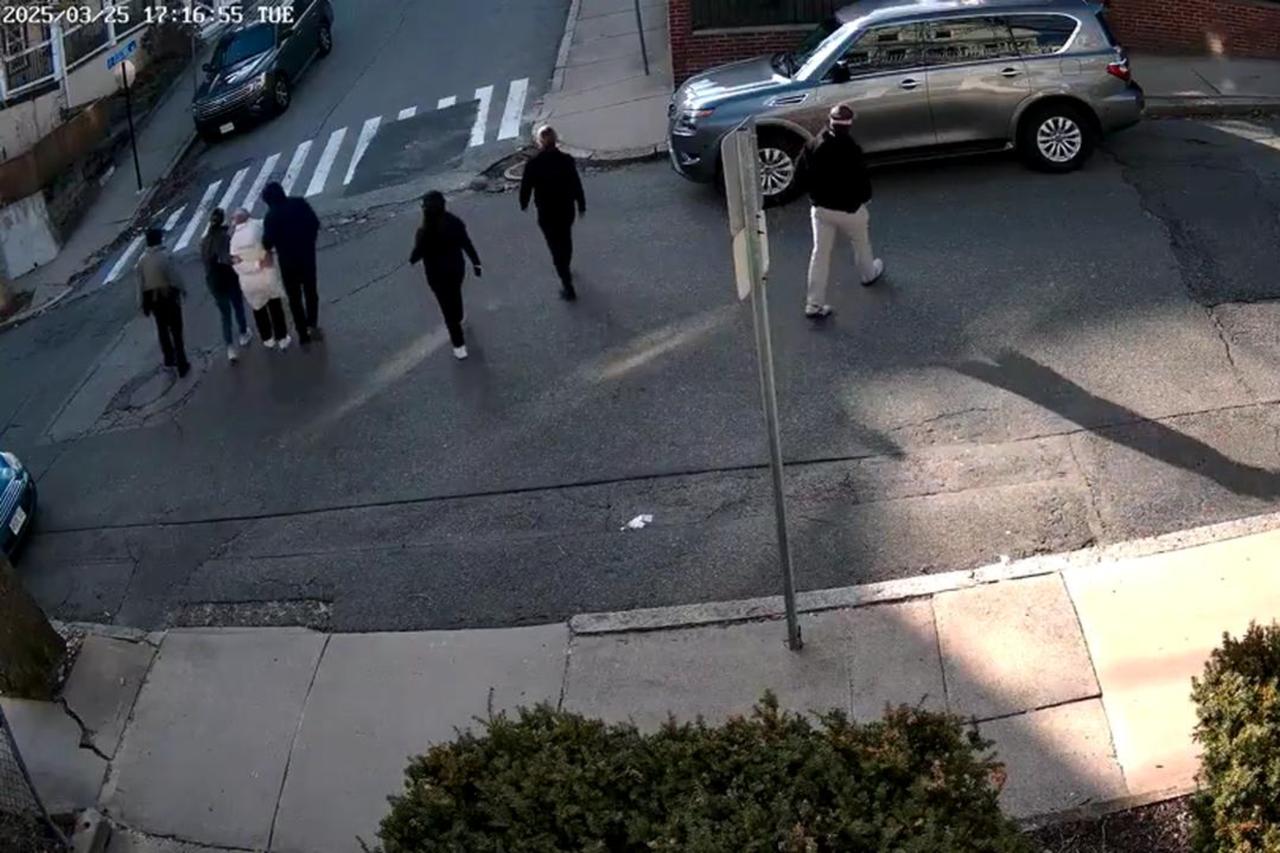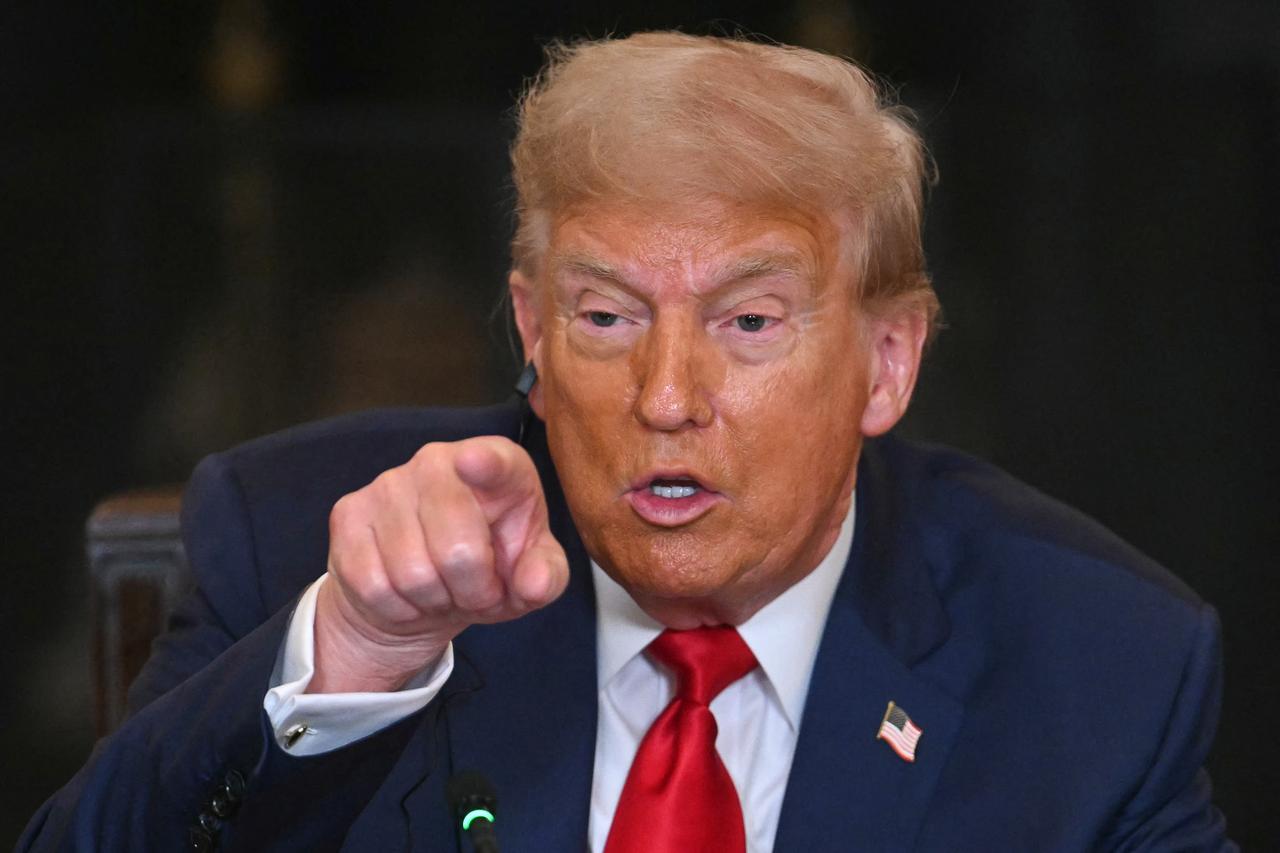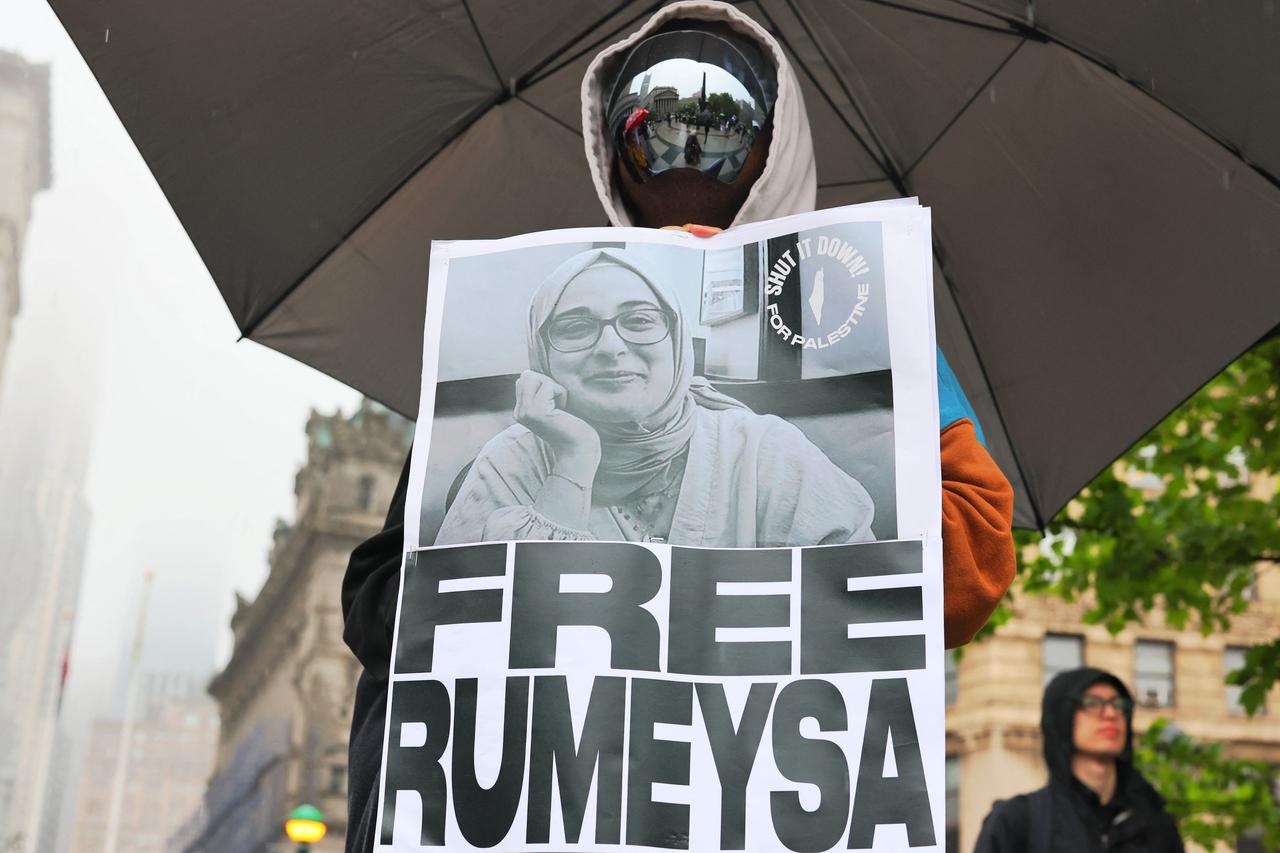
A senior immigration official testified Tuesday that his supervisors instructed him to prioritize the arrest of a Tufts University doctoral student, marking the first time in his career he had received such a directive from Immigration and Customs Enforcement regarding a visa revocation case.
Patrick Cunningham, an assistant special agent in charge at the Homeland Security Investigations office in Boston, told a federal court that the operation to arrest Rumeysa Ozturk "developed pretty quickly" after her visa was revoked.
"I can't recall a time that it's come top down like this with a visa revocation," Cunningham said during testimony in a lawsuit challenging the Trump administration's immigration policies. "We made it a priority."
The testimony came during the seventh day of trial in a lawsuit brought by higher education organizations, including the American Association of University Professors, over the Trump administration's policies of arresting and detaining noncitizen students and others engaged in pro-Palestinian activism.

Cunningham acknowledged that in the months after President Trump was inaugurated in January, Homeland Security Investigations has been prioritizing immigration arrests more than before, representing a significant operational shift for the agency.
"The prioritization of that work has certainly increased," Cunningham said, noting that prior to this change, he largely had no experience with these kinds of cases.
Multiple top ICE officials from the Boston, New England, New York, and Washington D.C. offices of Homeland Security Investigations testified Tuesday that in the past six months under Trump, they were told to prioritize immigration enforcement cases, as opposed to criminal cases, which they had previously focused on.
The agents testified that supervisors had conveyed to them that the Department of State notified their offices that various scholars were in violation of immigration law, and that resources should be swiftly allocated to locate and eventually arrest them.

Ozturk was arrested in March by plainclothes immigration agents in masks on a Somerville street. She was held for more than six weeks in a detention facility in Louisiana before a Vermont judge ordered her release as she challenges her deportation.
Cunningham testified that he received an email which included a memo from the Department of State as an attachment, which said that Ozturk's visa had been revoked. The email also included a copy of an op-ed Ozturk co-wrote in the student newspaper calling on Tufts to divest from companies with ties to Israel.
"I could not remember receiving a similar communication in my time at HSI," he testified, adding that "there were a lot of hands in fishbowl" in planning for and carrying out the arrest.
When asked by attorney Michael Tremonte if there had been a decision made by top officials to keep Ozturk's visa's revocation a secret from her, Cunningham responded: "We did not plan on alerting her to the fact that her visa had been revoked."
John Armstrong, a top official in the Bureau of Consular Affairs, which is part of the State Department, also testified Friday that Ozturk was not informed that her visa was being revoked, on guidance from ICE officials.
"ICE had made a request that we not inform so that they could take action to remove Ms. Ozturk from the United States," Armstrong said. Armstrong said the State Department typically lets visa holders know that their visa is being revoked.
The testimony revealed how federal investigators relied on outside sources to identify pro-Palestinian activists. Last week, Peter Hatch, an assistant director of an ICE intelligence office, testified that analysts were directed to look at a pro-Israel website for leads on investigating protesters because it contained more than 5,000 names of people who publicly supported the Palestinian cause.
Hatch disclosed that the agency relied heavily on the website, Canary Mission, to identify international students who protested the war in Gaza, including Ozturk, as part of the Trump administration's crackdown on the pro-Palestinian movement on college campuses. The team looking into the protesters was internally referred to as Tiger Team, Hatch said.
An attorney for the plaintiffs displayed in court a report on Ozturk, titled "Report of Analysis," which was ICE's subject profile of Ozturk. It was the first time the report, which was only partially unveiled, had been disclosed.
When questioned about the op-ed Ozturk co-wrote, Cunningham said he did not see anything in the piece that indicated evidence of a crime.
Tuesday's testimony also covered the arrests of other students who had expressed pro-Palestinian views. Several ICE agents testified about their involvement in the arrests of Mahmoud Khalil in New York, Mohsen Mahdawi in Vermont, and Badar Khan Suri, a postdoctoral scholar and professor at Georgetown University.
Darren McCormack, a high-ranking agent at HSI's New York division, testified that he received an intelligence packet on Columbia University graduate student Mahmoud Khalil and was told the administration was interested in the case.
"At some point I was made aware that the Secretary of State and or the White House had an interest in Mr. Khalil," McCormack testified.
Like in the case of Ozturk, McCormack checked with officials to make sure the arrest being requested was legally sound, noting that HSI had not historically enforced immigration laws in recent times.
US District Judge William G. Young will decide whether the lawsuit plaintiffs proved their claims that the administration's effort to revoke the visas of pro-Palestinian protesters and deport them is a violation of their First Amendment rights and the Administrative Procedure Act.
During Cunningham's testimony, Young noted that "not everyone who has their visa revoked is arrested," emphasizing that the broader question concerns the reasons behind the enforcement actions.
Young said he was in possession of various documents related to Ozturk's arrest, but that he could not share them with the plaintiffs because a federal appeals court has ordered they remain sealed while weighing a petition by the government to declare them privileged information.